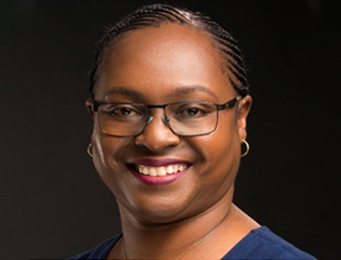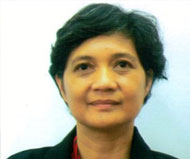| |
|
|

Interviews ::
 |
Amy Wu, an award-winning writer for the women’s Ag and Agtech movement |
 |
Ms. Irene Karani, Children’s Investment Fund Foundations’ Africa Climate Director |
 |
Natalia Schäfer (Schaefer), Leading and Globally Renowned Artist |
|
Read All Interviews |
News / Updates/ Analysis ::
COP 27- some hopes midst of chaos
Climate Change is Happening Now- Time to Take Action!
|


|
|
|

|
"Millions of smallholder women and men farmers, landless workers, pastoralists, fishers and indigenous people- are struggling to feed their families and better their lives. Young people are given no other viable alternative than to abandon the land and agriculture."
|
Asian Farmers' Association (AFA) is a regional alliance of ten national farmers' organizations in eight countries in Southeast and North Asia, with a membership of around ten million small scale women and men farmers, fishers and indigenous peoples. AFA advocates for the rights of small-scale men and women farmers in Asia, promotes cooperation and solidarity, and supports capacity building among them. Esther Penunia is the Secretary General of AFA; she has closely observed the COP 16 negotiations in Cancun. Here is the brief synopsis of dialogue of Esther with Prabodh Devkota
and Sabita Gyawali:
- After almost three decades, Agriculture has been a major global development agenda, how do you observe this context? And what should be done to maximize the opportunity to save millions of lives in face of growing food insecurity?
The numbers of regional and international conferences devoted to agricultural issues have increased since the food price hike in 2008. In these conferences, the poverty and vulnerabilities of small scale women and farmers, fishers, pastoralists in food production, have been ascertained. Our roles towards food security and poverty reduction have been highlighted, considering that we produce 70% of the world's food and yet are among the most impoverished and hungry in the world.
Also, there is a growing consensus that the "business-as-usual" approach of agriculture, characterized by mono-cropping and industrial, chemical intensive agriculture is not the way to go. To achieve food security and poverty reduction, efforts and investments in agriculture should be focused on sustainable, integrated, diversified agriculture done and managed by organized groups of small scale women and men farmers, fishers, indigenous peoples.
Farmers' organizations at all levels should heighten our advocacies and engagement for sustainable agriculture, at both policy and program arenas, and at all levels: local, national, regional and international.
- How do you see the situation of farmers in Asia, especially small scale farmers? What are the challenges?
Millions of smallholder women and men farmers, landless workers, pastoralists, fishers and indigenous people- are struggling to feed their families and better their lives. Young people are given no other viable alternative than to abandon the land and agriculture. The poverty of smallholders is mainly caused by unequal distribution of resources, lack of access to economic opportunities and their poor participation in decision-making processes.
- How do you see the contributions of Asian women in farming sector and what are challenges and opportunities?
In Asia, aside from being wives and mothers, women are farmers too, and do as much as 80% of the work in the farms, with or without their men / husbands. Note that there is much migration to the urban areas.
While women farmers perform so many roles as farmers, wives, and mothers, their work are often undervalued, many times unpaid, some even unrecognized, because of persisting stereotypes about men and women. This inadequate recognition about women's contributions to agriculture had led to inequalities between men and women farmers in terms of access and control over productive resources, services, and facilities as well as in decision-making.
If we are to reduce hunger and poverty in this world, we have to recognize that women farmers have the potential and the solution to bring their families out of poverty; and thus women farmers should be at the forefront of agriculture. If women earn, they spend the money on the family's basics: food, health and children's education. There is by now a mass of rigorous research that has demonstrated the gains that can be achieved in terms of productivity and incomes, by focusing development efforts in empowering women and their organizations.
- How does AFA see the land rights issues in the broader framework of agriculture and equal distribution?
Sustainable agriculture (SA) starts with the number one requirement and basic: farmers have secured rights to the lands they till. We can only decide on what to plant, when to plant, what kind of seeds and technology to use , where to market our product, what kind of farmers associations to affiliate into, even whom will we vote for in local and national elections, if we have our rights and ownership of the lands we farm.
- Asian agro-economy is still dominated by male- what are AFA's alternative strategy to find space for women?
We make serious efforts to be gender sensitive in our work. AFA has an affirmative action --- in our meetings, we try to get at least 40% women participants in training and consultations, as well as in regional and international interpretation. In every issue we tackle, we try to answer how does it affect women and men? And what are the proposals from the women and the men? We conduct gender sensitive researches - last year we had a participatory research on the gender dimension of food security amidst climate change where we targeted at least 70% women as participants; this was in partnership with IFAD and FAO. We are now implementing a Rural Women's Leadership Project with PAKISAMA, our Philippine member; this is in partnership with WOCAN, an international NGO. We hope this pilot project can be replicated in the other countries we cover. In the next years, as part of our five year strategy plan, we want to establish and strengthen our women's program, have a women's arm or committee, and conduct regionally coordinated but nationally implemented activities that addresses both practical and strategic gender needs of our women members.
Date: Dec 21th, 2010.
For your feedback: secretariat@earthconcernasia.com
Note: Opinions expressed in interview sections and individual write ups are of interviewee/ authors; earth concern facilitates to bring ideas and perspectives.
|
|

